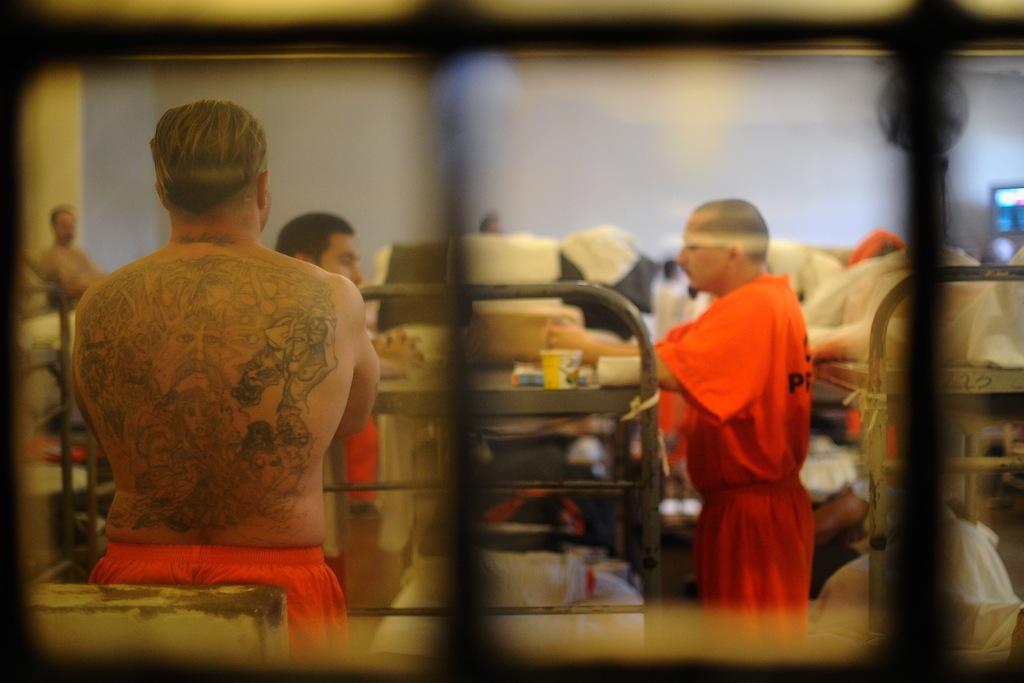California prison hunger strike enters fourth day
An inmate at Chino State Prison sleeps on his bunk bed in a gymnasium that was modified to house prisoners on December 10, 2010 in Chino, California.
LOS ANGELES — A hunger strike across California's prisons has entered its fourth day as inmates continue to protest the use of solitary confinement for those suspected of having ties to prison gangs.
At California's remote northern Pelican Bay prison, inmates can be held in isolation indefinitely – where some can go without contact or access to the outdoors for decades.
Some inmates on the hunger strike are also protesting what they say is poor food quality and inadequate rehabilitation and education programs.
The number of inmates refusing food has dropped from 30,000 to 29,000 since its start on Monday.
Prisoners told the Los Angeles Times on Wednesday that officials threatened to search their cells and confiscate any food items like candy and instant noodles that they have purchased from the canteens.
Prisoners also claim that officials threatened to move them into solitary confinement if they continued to refuse meals.
Deborah Hoffman, lead spokeswoman for the California Department of Corrections and Rehabilitation, told the Times that she would not confirm the inmates' claims but said they "might be part of our normal policy."
"There is a process in place when an inmate misses his ninth consecutive meal — and it is a process — it doesn't all happen at once, can take days," Hoffman said in an email to the Times.
Prison officials will not recognize a hunger strike as official until inmates have missed nine consecutive meals.
The protest could become the largest in the state's history and officials are bracing for it to continue into the long term.
Two previous hunger strikes since 2011 had 4,000 to 6,000 participants at their peak. The strikes ended when prison officials promised reforms but advocates for the prisoners say that the current protest will continue until officials follow through with the changes.
"Last time, they took promises of reforms, but they are not going to do that again, because two years later the reforms have not materialized in any real way," Jules Lobel, the president of the Center for Constitutional Rights and the lead lawyer in a federal lawsuit over solitary confinement told the New York Times.
"This could become a very serious situation over time, because it seems we have a substantial group of people who are prepared to see it to the end if they don’t get real change," he said.
California is under a federal court order to reduce the number of inmates by about 10,000 inmates this year to ease crowding.
The state's governor Jerry Brown asked the Supreme Court on Wednesday to lift that order claiming that conditions have improved.
"California has now diverted tens of thousands of low-risk inmates from state prison to local authorities …, expanded good time credits for certain classes of inmates …, and eliminated any need to use gymnasiums and day rooms for anything other than their intended purposes," Brown and Attorney General Kamala Harris wrote.
The state's 33 prisons now hold about 50 percent more inmates than they were designed to house.
Every day, reporters and producers at The World are hard at work bringing you human-centered news from across the globe. But we can’t do it without you. We need your support to ensure we can continue this work for another year.
Make a gift today, and you’ll help us unlock a matching gift of $67,000!
